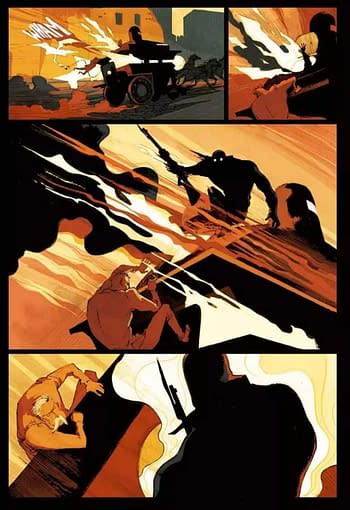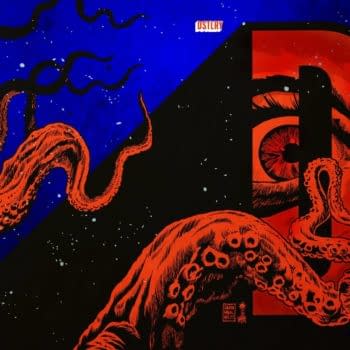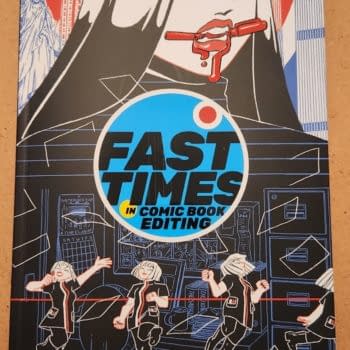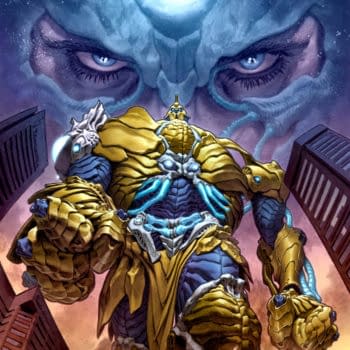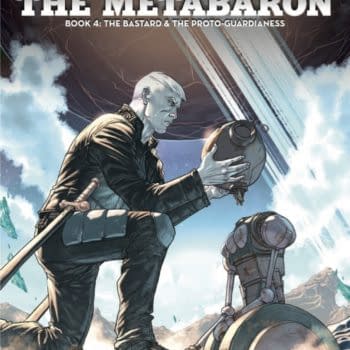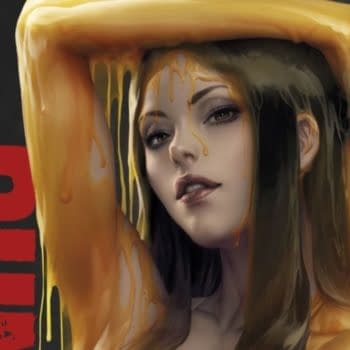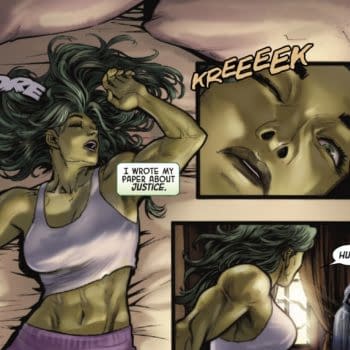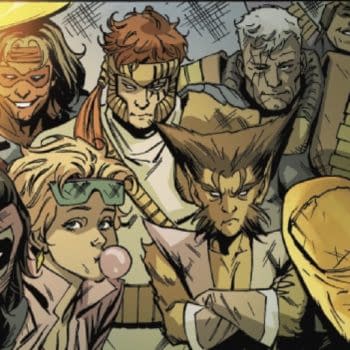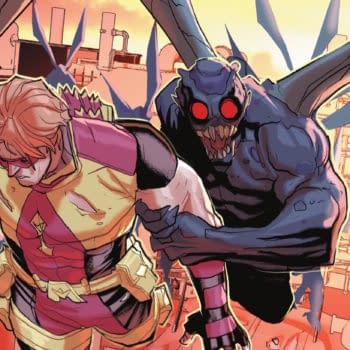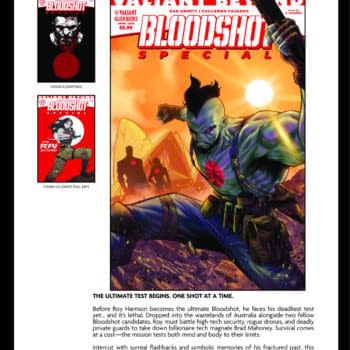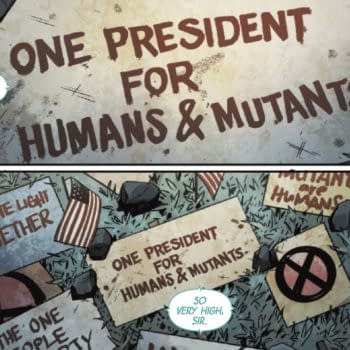Posted in: Comics | Tagged: statix press, wrath of fantomas
Demon In Profile: Thoughts About The Wrath Of Fantômas
Bless the Statix Press team, they do everything they can to avoid the word reboot. But that's what their new OGN called The Wrath Of Fantômas is. It's a reboot, and it succeeds on a scale grand enough for the Sorbonne.
Fantômas, the pre-WWI French super villain who commits atrocities with astonishing scope, returns in a new story by Olivier Bocquet (FRNK, Snowpiercer) and Julie Rocheleau (Assemblage, Betty Boob, Laura Letorneau). First published in French by Dargaud in 2017, Statix Press, an imprint of Titan, released the collection in English in February 2019.
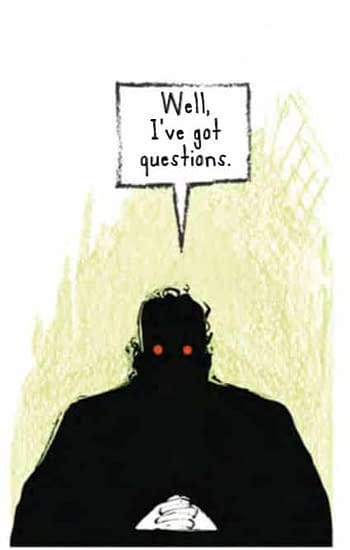
Bocquet enjoys himself. There's a betrayal, a chase, a heist, and men jumping on the top of trains trying to kill each other. There's even a locked room mystery! He sets what appears to be a traditional Fantômas story (1911, major characters) alongside a couple cameos for genuine historical figures. True to form, Fantômas commits bombings and heists with flair, even if his demeanor has all the warmth of a lock-in freezer. The plot's closer to Sherlock Holmes, the perspective and attitude closer to Darwyn Cooke's Parker.
Rocheleau's art is exquisite. She drew the mustaches just exaggerated enough that they look tactile to the reader. Bocquet, seeing this, calls attention to the mustaches in a funny scene.
It appears she drew the pages with acrylic colors, brushes and a hyper thin ink pen. James Lovegrove's foreword contains a better description of Rocheleau's pages than mine: impressionist, and "so redolent of early-twentieth century Paris that it seems steeped in absinthe." It actually does. Or, if it isn't redolent of early twentieth century Paris, it is redolent with our imperfect memory of it. There's a couple art nouveau moments, too. Rocheleau makes many inspired choices, including this one: She colors the guillotine in all black to set it apart from the rest of the page.
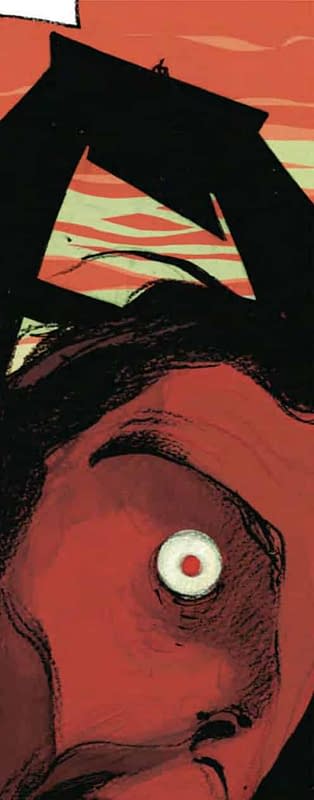
My favorite inspired choice might come from the translator, Edward Gauvin. In an emotional crescendo where Fantômas finally unmasks himself to a character he's not going to murder or torture, he does so with a magician's flourish and a single word: Voilà.
Darwyn Cooke's Parker strikes me as the most similar, even though the real world grounds Parker in a way that Fantômas glides over.
At bottom, The Wrath Of Fantômas is my favorite comic I've read this year. Très bien, mes amis.
